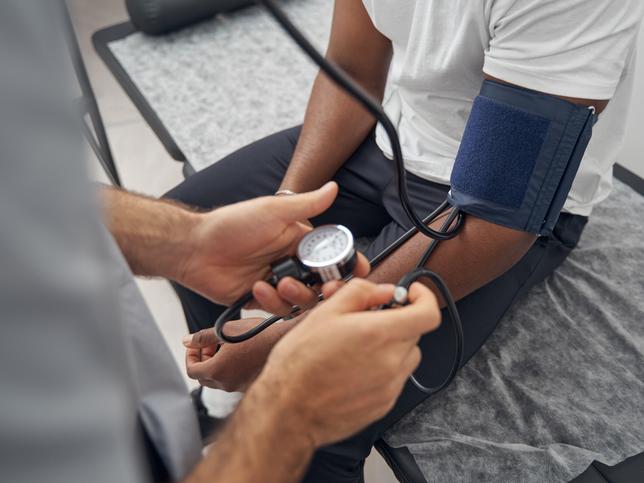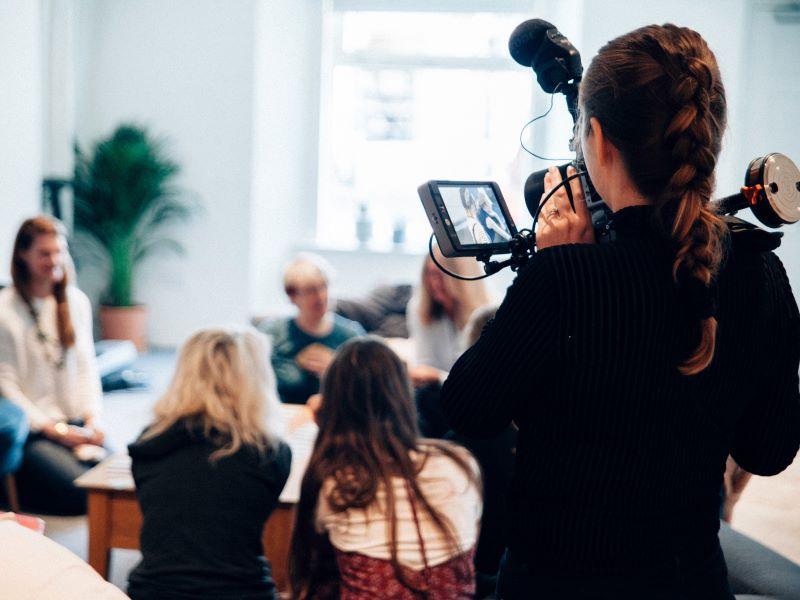
‘You can change the world with a haircut’: engaging communities at risk

You may also like
Did you know that:
- High blood pressure is responsible for more than half of all strokes and heart attacks?
- High blood pressure is a risk factor for heart disease, kidney disease and dementia?
- High blood pressure affects about a third of all men and of those, roughly 25 per cent have high blood pressure that is not controlled?
But the challenge is reaching people who don’t know they have high blood pressure or don’t think it is important. People of Black and minority ethnic heritage in the UK are disproportionately affected by high blood pressure. There are a number of reasons for this, but lack of awareness and poorer engagement with the NHS, possibly because of lack of trust, is common. It’s important we identify new non-NHS settings for engaging people at risk of high blood pressure.
At London South Bank University, we’ve taken an innovative approach to identifying and managing high blood pressure in our communities. We needed to involve people who are trusted in their local communities, so we recruited our diverse group of undergraduate nursing students and local partners to meet this challenge together.
So what have we done?
The starting point is working with local voluntary and charitable organisations to understand the needs of the local population. Since 2022, we’ve had two projects running to do this. We have worked with the Croydon BME Forum on a barbershop project, and we’ve also worked with Healthwatch Southwark and GOLD (Gift of Living Donation) on our Community Ambassador programmes. It is critical to run these programmes with people able to give healthcare messages to their own communities because of the trust they hold. Plus, many of them have experienced high blood pressure, diabetes and kidney disease in their families. This is important, because people who have experience of these conditions feel committed and passionate about the cause.
- THE Awards 2024 spotlight: learn from the best in UK and Irish higher education
- ‘Doing human’: ways for researchers to make patients feel comfortable to express themselves
- Building trust in research: how effective patient and public involvement can help
In any programme, it is important to train people who are taking blood pressure measurements and giving advice. Our barbers are trained, online and in person, to take accurate blood pressure (BP) readings and give advice. We enrol second- or third-year nursing students as our Community Ambassadors because they are familiar with taking BP. We just need to teach them about how to have a conversation with the general public about managing blood pressure and what this means.
For both projects we developed advice cards to give to people who have had their blood pressure measured. We ensure that we use using validated blood pressure machines so that we were able to give sound advice to those with high blood pressure.
What have we learned?
We often need to incentivise people to attend – either with freebies such as stress balls, or vouchers for reduced price haircuts.
We need to assure people that having a BP reading taken will not be painful or involve needles, like a blood test.
It is a good idea to involve a local influencer to give a talk at an event or promote the events on social media. Our hashtag is #knowyournumbers.
Many people are reluctant to give their names or any contact details, so we assure them that we will just record the BP reading and nothing else.
The education and resources that we provide need to be culturally appropriate, such as dietary advice for specific foods that are eaten by local people (for example, African or South Asian foods).
What has the impact been?
We have run two barbershop projects in south London. The first, in 2022, was a feasibility study, to see if barbers could be trained, could engage their clients to have their BP taken and could encourage them to seek NHS advice if required. Our second barbershop project is running in 2024 and, this year, we are following up clients who are recorded as having high BP, to see if they seek further management via the NHS.
Our Community Ambassadors have run two annual events at the university for staff and students since 2022, one to mark Black History Month in October and another to mark World Kidney Day in March. Each event attracts 100 to 150 people.
We have also run outreach events in our local community, in collaboration with Healthwatch, and also with a local mosque. At each event we have representatives from local NHS trusts and voluntary organisations to give dietary advice and information about organ donation.
What do we need to do next?
As with any initiative, we need to maintain momentum, ensure good succession planning and secure funding. Our Community Ambassador events are run every six months, and we have a fantastic planning team which organises the events and trains the students online. It’s important that we train new undergraduate students annually to ensure succession.
Our budget for these events is minimal – approximately £300 per event for Ambassador T-shirts and freebies to give away. Our barbershop project requires ongoing research funding to continue, and this has been a challenge because we need evidence that barbershop clients go on to have their BP managed in the NHS. This is a longer-term outcome but sadly the NHS does not always focus on prevention or self-management.
We would encourage other higher education institutions to consider running community healthcare events – there is a lot of knowledge and expertise among staff and students, many of whom have worked in the NHS. There are huge learning opportunities for healthcare students and numerous topics to consider, ranging from mental health to cancer care, and students from any discipline are usually very happy to attend and increase their healthcare knowledge for themselves and their families. We have fun at every event, and it is a privilege to hear and chat about the healthcare challenges that staff and students struggle with themselves or when caring for family members.
Nicola Thomas is professor of kidney care at London South Bank University. The university won the Outstanding Contribution to the Local Community category in the 2024 THE Awards. A full list of nominees can be found here.
If you would like advice and insight from academics and university staff delivered direct to your inbox each week, sign up for the Campus newsletter.


